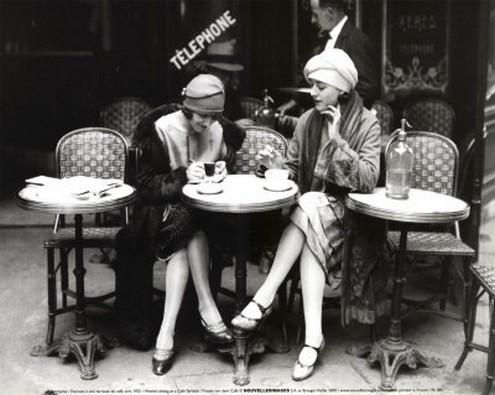Whilst I am engaging in small talk with a client, there is a lot of ‘other’ talk going on inside my head. In this way it is quite different when I do small talk in a normal social situation where there is not the same cognitive calculations going on inside my head.

Upon reflection, I think I use small talk therapy in a variety of ways. As OLJ says sometimes the small talk can lead to ‘hard’ talk. I would say that at times I am doing the same in small talk. It buys me time where I can assess the client’s current mood and allows me time to plan a strategy to follow for that session. As they talk I am constantly looking for a therapeutic angle where I can make a small switch of direction or make a connection they may not be aware of to their life script. Once done then the small talk becomes hard talk and sometimes clients will say things like, “How did we end up here”, or “I didn’t expect to be doing this today”.
It is also a good opportunity to give positive strokes to the client which builds the relational and then that can always lead into work on the client’s stroke filter. It is also a time where I might slip in some self disclosure which again helps build the relational with the client.
As I think about it, it is also a good way to take a psychological history from the client and do cross checking at the same time. I have always said that there are certain similarities between a therapist interview of a client and the police interview of a suspect. They seek some of the same goals but for different motives.

Positive strokes? These three women seem to have
a distinct dislike for each other
I worry myself at times how I never believe anything anyone tells me anymore, at least with client’s that is. Now don’t take that the wrong way. I am not saying that client’s are a group of pathological liars, but having been in the therapy business for 30 years I know how well people lie to themselves regularly. If they are lying to self about some thing and I ask a question then they are going to lie to me about it. In addition, at times I am asking people very personal questions and they may choose not to be fully candid in their answer with me at that juncture. There is nothing wrong with that and if I was in their shoes I would probably do the same.
In police interviews they can ask suspects the same question three times in three different ways. When doing small talk at times I am doing the same. Not to catch them out but to be able to identify incongruencies and bring them to the client’s attention.
Therapist: Did you go out on the weekend?
Client: Yes we went to a restaurant called ‘x’.
T: I know that one, they have great fish there
C: Oh do they, for my meal I had.....
I am now going to get all sorts of information about this persons eating. In my initial history taking with the client I may have asked about their diet and eating. I am just about to find out how consistent or inconsistent that information was. The client may be quite skinny and report eating a high fat meal or they may be over weight and report ordering just a salad. This is the other kind of information I may pick up.

Therapist: Were you there with family?
Client: Yes, my mother and sister......
I am now going to get all sorts of information about the client’s family dynamics and will be able to compare it with previous information the client has given me. I am also going to get lots of information about their social life which is important in any mental status examination.
I definitely use small talk for such psychological history taking and to cross check information.
Sometimes I just forget stuff about the client and small talk allows me to remember it without the client realising I had forgotten. I am sitting looking at a client and I can’t remember if her mother is dead or alive, if she has a father or brothers and sisters so I might say, “Have you caught up with any family lately?”. As I get a little bit of information a whole heap of information can comes rushing back as I recall it. Its like I just need that little prompt and then I remember lots of stuff about the client. So in this sense small talk therapy is like me reading my notes on the client that I should have done more diligently before they arrived
Well there you have it! I just discovered that I know all this stuff that I never knew I knew. Thanks OLJ.
Graffiti
No comments:
Post a Comment